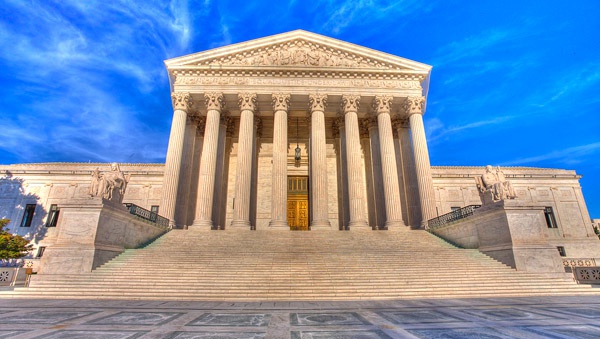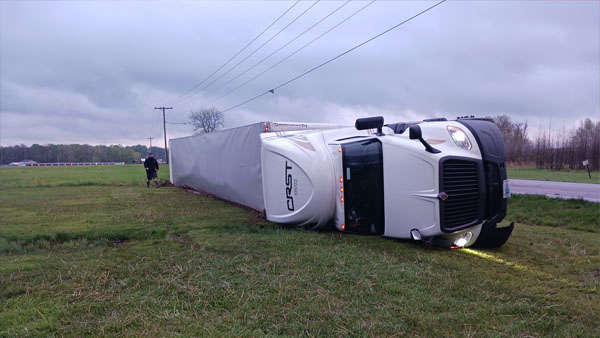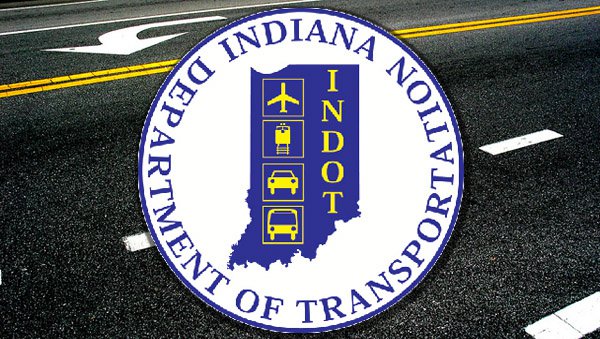The 2016 law's provision requiring that aborted fetal remains be buried or cremated was upheld.

U.S. Supreme Court
(Washington) - The U.S. Supreme Court has upheld a key provision of the 2016 Indiana abortion law regulating how an unborn child’s remains are disposed.
But on the question of whether abortions can be performed due to a fetus’ gender, race, or disability, the court is punting for now.
The law, House Enrolled Act 1337, was signed by then-Governor Mike Pence in 2016. In the Box v. Planned Parenthood of Indiana and Kentucky case, the law was blocked last year from going into effect by the U.S. 7th Circuit Court of Appeals in Chicago.
On Tuesday, the nation’s highest court affirmed the lower court ruling that invalidated part of the law that prohibited abortion because of a fetus’ gender, race or disability of the fetus, such as Down syndrome. The court said its “opinion expresses no view on the merits” of the question.
“We follow our ordinary practice of denying petitions insofar as they raise legal issues that have not been considered by additional Courts of Appeals,” the Court stated in its opinion.
The court did uphold a different section of the Indiana law requiring the fetal remains from abortions be buried or cremated. The provision was aimed at requiring the remains - termed "medical waste" by Planned Parenthood and ACLU attorneys - be treated the same as those of any other person.
Indiana Attorney General Curtis Hill lauded the court’s ruling on the question of whether a state has the right to regulate disposal of remains in the case of abortion.
“The highest court in the land has now affirmed that nothing in the Constitution prohibits states from requiring abortion clinics to provide an element of basic human dignity in disposing of the fetuses they abort,” Hill said. “These tiny bodies are, after all, human remains.”
Justice Ruth Bader Ginsburg said in a brief opinion of her own that she believes the issue implicates a woman’s right to have an abortion “without undue interference from the state.”
Planned Parenthood of Indiana and Kentucky said the restriction on the “treatment of tissue” had nothing to do with medical care and only aims to shame and stigmatize women.
“The anti-reproductive health politicians who created these laws to shame patients have no place in the exam room,” said Chris Charbonneau, CEO at Planned Parenthood of Indiana and Kentucky. “Planned Parenthood remains vigilant in working to stop the unprecedented rollback of reproductive rights and freedom. Nearly 40,000 patients relied on Planned Parenthood in Indiana last year to provide a full range of reproductive health care, including safe and legal abortion care. While elected officials attempt to score political points by putting the health of Hoosiers in danger, we’ll continue fighting for the rights of our patients and their ability to seek lifesaving care without fear or judgment.”
Conservative Justice Clarence Thomas wrote a separate, 20-page concurrence expanding on the question of whether abortions performed because of a fetus’ gender, race or disability should be legal. He noted that laws like Indiana’s “promote a State’s compelling interest in preventing abortion from becoming a tool of modern-day eugenics.”
“Even after World War II, future Planned Parenthood President Alan Guttmacher and other abortion advocates endorsed abortion for eugenic reasons and promoted it as a means of controlling the population and improving its quality,” Thomas opined. “Enshrining a constitutional right to an abortion based solely on the race, sex, or disability of an unborn child, as Planned Parenthood advocates, would constitutionalize the views of the 20th-century eugenics movement.”
Although he was in agreement that the court was right to not take up the law's second provision, Thomas said the justices will “soon need to confront the issue.”
“Although the Court declines to wade into these issues today, we cannot avoid them forever. Having created the constitutional right to an abortion, this court is duty bound to address its scope.”
RELATED STORIES:

 Switz. Co Sheriff's Office Seeking Info About Stolen Excavator
Switz. Co Sheriff's Office Seeking Info About Stolen Excavator
 Ohio County Community Foundation Receives $300,000 Grant
Ohio County Community Foundation Receives $300,000 Grant
 City of Lawrenceburg Recognizes Two Officers for Life-Saving Actions
City of Lawrenceburg Recognizes Two Officers for Life-Saving Actions
 No Injuries in Semi Accident Near Versailles
No Injuries in Semi Accident Near Versailles
 EC's Stenger Selected to IHSAA Student Advisory Committee
EC's Stenger Selected to IHSAA Student Advisory Committee
 Indiana Drivers Urged to Travel Safely in Work Zones
Indiana Drivers Urged to Travel Safely in Work Zones












